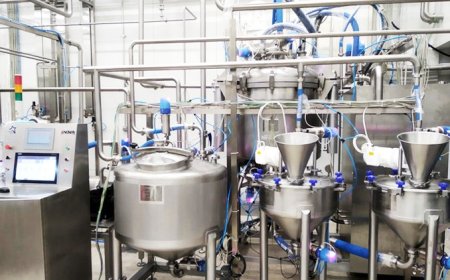Top AI Marketing Tools in 2025: Features and Use Cases
In the rapidly evolving world of digital marketing, 2025 marks a transformative phase where artificial intelligence (AI) is no longer an emerging technology but a cornerstone of strategic execution. From automating content creation to enhancing customer personalization,AI marketing toolsare redefining how brands connect with their audiences. These tools are not just about automation; they are about intelligent automationdriven by data, refined by machine learning, and scaled with precision. This article explores the most powerful AI marketing tools available in 2025, the features that set them apart, and how businesses are using them to stay competitive in a hyper-digital landscape.
The Rise of AI in Modern Marketing
Artificial intelligence in marketing has moved beyond simple chatbots and basic automation workflows. Today, it integrates deeply with customer journey mapping, predictive analytics, content strategy, voice search optimization, and dynamic ad creation. As digital ecosystems grow more complex, marketers increasingly rely on AI to synthesize data, identify patterns, and deliver personalized experiences across multiple touchpoints. AI enables a level of precision and speed that human teams alone cannot achieve, making it indispensable for businesses seeking to scale efficiently while improving ROI.
Leading AI Marketing Tools in 2025
Jasper AIcontinues to lead the content creation space, evolving in 2025 with deeper integration into CMS platforms, enhanced tone-of-voice personalization, and multilingual content generation capabilities. Brands use Jasper to generate blogs, product descriptions, ad copy, and even social media content that align with brand voice and SEO strategy. Marketers favor Jasper for its capacity to learn from user feedback, improving the quality and relevance of content over time.
MarketMuseremains a dominant force in content strategy planning. In 2025, the tool has improved its topic modeling algorithms, allowing marketers to generate detailed content briefs that match user intent with astonishing accuracy. It assists content teams by evaluating existing website content and suggesting updates to improve topical authority. MarketMuse's predictive content scoring now incorporates AI-based heatmap simulations to forecast engagement levels before publishing.
Seventh Sense, focused on email marketing, uses AI to optimize send times based on individual recipient behaviors. The tool learns from past campaign interactions and ensures that emails hit inboxes at the most likely time for engagement. This level of behavioral analysis improves open rates and conversions, especially in B2B segments where timing significantly influences decision-making.
Surfer SEOhas expanded its offerings in 2025 to combine real-time SERP analysis with AI-generated content outlines. Surfers integration with tools like Jasper and WordPress makes it a favorite among SEO-driven teams. Its AI now dynamically adjusts optimization recommendations based on Googles algorithm updates, ensuring content remains compliant and competitive.
Chatfuel AI, known for building intelligent chatbot systems, has integrated generative AI into its conversational flows. The bots now provide human-like interaction that not only responds to queries but guides users through the sales funnel. Companies use Chatfuel to enhance lead generation, streamline support queries, and improve ecommerce conversions through automated assistance.
NeuralTexthas gained traction as a complete AI content suite, combining keyword research, competitor analysis, and writing assistance in one platform. What sets NeuralText apart is its ability to model high-performing content structures based on competitor data and user behavior signals. The tool has become essential for teams running lean content operations that need results without large teams.
Practical Use Cases Across Industries
Retail brands leverage AI marketing tools like Dynamic Yield to deliver hyper-personalized product recommendations and dynamically adapt landing pages based on user behavior. This personalization increases conversion rates and customer satisfaction, especially in fashion and electronics niches where choice overwhelm is common.
In the SaaS sector, tools like Drift are being used for intelligent lead qualification through AI-driven conversations. Drifts AI identifies high-intent users and routes them to human sales reps, reducing lead response time dramatically and improving the customer experience.
Healthcare marketers are now employing tools like Pathmatics AI to monitor competitor ad strategies and audience engagement levels across channels. This intelligence informs content planning and budget allocation in campaigns where precision targeting is vital due to regulations.
Even small local businesses are benefitting. By using AI marketing tools like Writesonic and Pictory, they can generate quality blog posts and short-form videos without needing dedicated content teams. These tools make professional-grade content creation accessible, even for non-experts.
Benefits and Limitations to Consider
The advantages of AI marketing tools are profound. They enhance productivity, reduce operational costs, and provide real-time insights that empower marketers to make informed decisions. With these tools, A/B testing becomes more scientific, content strategy more predictive, and campaign planning more agile.
However, despite their power, these tools are not without limitations. AI still lacks the emotional intelligence and contextual understanding of human marketers. It can replicate tone and structure but often misses the nuance of cultural or niche-specific messaging. Furthermore, over-reliance on AI can result in generic, soulless content if not carefully curated by skilled professionals.
Privacy remains a concern as AI tools become more data-hungry. As regulations like GDPR and Indias DPDP Act evolve, marketers must ensure their AI tools comply with data protection standards. This calls for a balance between automation and ethical marketing practices.
Future Trends: Where AI Marketing Tools Are Heading
In 2025 and beyond, we can expect AI marketing tools to become more autonomous. We are already witnessing the emergence of "agentic AI"tools that can plan and execute entire marketing campaigns with minimal human input. These agents will handle ad budgeting, creative generation, A/B testing, and campaign optimization across channels simultaneously.
Voice search and visual search optimization are also gaining momentum. Tools are emerging that can analyze voice query trends and help marketers structure content to rank in voice results. Similarly, AI-driven image recognition is influencing how brands tag, categorize, and promote visual content.
As brands increasingly move toward omnichannel strategies, AI tools will play a central role in unifying messaging across web, mobile, email, and social platforms. Expect deeper integrations between AI marketing tools and CRMs, enabling marketers to deliver consistent, context-aware messaging at scale.
Learning and Upskilling for the AI Era
Given the speed at which AI is transforming the marketing world, continuous learning is critical. Professionals who want to leverage these tools effectively should consider enrolling in anAI marketing coursethat covers both theoretical foundations and practical implementation. These courses often include hands-on training with tools like Jasper, MarketMuse, and Chatfuel, giving marketers a competitive edge in todays job market.
Conclusion
The marketing landscape in 2025 is defined by intelligenceartificial intelligence that empowers human creativity and drives strategic execution. Businesses of all sizes are harnessing the power ofAI marketing toolsto create personalized experiences, optimize performance, and stay agile in a dynamic marketplace. From content generation to campaign optimization and behavioral analytics, these tools offer a significant competitive advantage when used effectively. As the AI revolution continues to accelerate, marketers must stay informed, remain adaptive, and never stop learning to ensure they are not just keeping upbut leading the way.


































